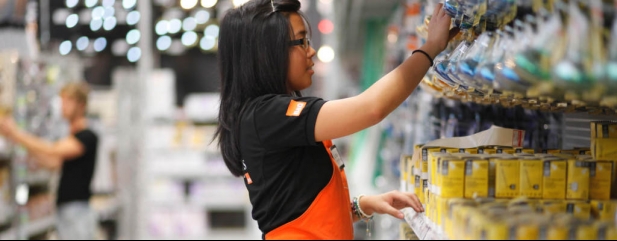Archived article
Please note that tax, investment, pension and ISA rules can change and the information and any views contained in this article may now be inaccurate.
Markets welcome lockdown easing but Brexit is still an issue

UK markets have been largely on the front foot as investors embraced the Government’s first moves to ease the pandemic lockdown and restart business and the economy.
Boris Johnson’s tentative measures will see many people who were unable to work from home and previously furloughed return to their jobs in key industries. This includes construction and some retail including DIY stores and garden centres.
Chancellor Rishi Sunak also extended the UK’s furlough scheme to October. A quarter of the UK workforce, about 7.5m people, are now covered by the scheme, which has cost £14bn a month. Children will also gradually begin returning to the classroom, and advice to avoid public transport and continue social distancing remains in place.
With cycling actively encouraged as a way to get about, investors swarmed round Halfords (HFD), sending the share price soaring nearly 50% since the end of last week. Other big winners so far include grocery delivery firm Ocado (OCDO), virus testing kit developer BATM (BVC) and Kingfisher (KGF), which owns the B&Q DIY chain.
‘Lockdowns are now in the process of being relaxed, both here in the UK and across much of Europe, which is clearly good news, but the relaxations are very tentative, with further easing dependent on there being no secondary spike in infections,’ says Rupert Thompson, chief investment officer at wealth manager Kingswood.
‘The latest news here has been rather less encouraging, with new localised outbreaks of the virus in China, South Korea and Germany.’
For the recent stock market rally to be sustainable ‘much needs to go right given valuations are stretched and the market seems to be assuming a strong rebound in earnings in 2021,’ says Lori Calvasina, head of US equity strategy at RBC Capital Markets.
Confirmation of the damage done to the US labour market, where employment fell by a massive 20.5m in April, is worrying. That’s effectively unwound job growth notched up since the global financial crisis, and the unemployment rate has surged to 14.7%.
The pound continued to ebb and flow against both the dollar and euro this week implying that currency investors are no more informed of the future than anyone else.
Angst over Covid-19 and trade continues to smoulder between the US and China while investors have been warned not to underestimate the investment risks of Brexit negotiations between the UK and EU.
Entering the third round of talks this week, the pandemic has understandably distracted both politicians and trade negotiators, but ‘the clock on trade talks has continued to count down regardless,’ says Matthew Cady, investment strategist at wealth manager Brooks Macdonald, with less than two months left to the 1 July transition deadline.
‘The UK/EU trade talks continues to be one of the key market risks that we are watching, given the potential negative impact for risk assets,’ he adds.
Important information:
These articles are provided by Shares magazine which is published by AJ Bell Media, a part of AJ Bell. Shares is not written by AJ Bell.
Shares is provided for your general information and use and is not a personal recommendation to invest. It is not intended to be relied upon by you in making or not making any investment decisions. The investments referred to in these articles will not be suitable for all investors. If in doubt please seek appropriate independent financial advice.
Investors acting on the information in these articles do so at their own risk and AJ Bell Media and its staff do not accept liability for losses suffered by investors as a result of their investment decisions.
Issue contents
Exchange-Traded Funds
Feature
First-time Investor
Great Ideas
- Genus remains well positioned for further growth
- Civitas targets above-inflation dividend growth
- More reasons to be positive on ITV as viewing figures rise
- Buy this ETF to profit from the healthcare revolution
- Boris’ return to work by car message could boost shares in Motorpoint
- Ocado shares hit another new all-time high on surging grocery sales

 magazine
magazine








